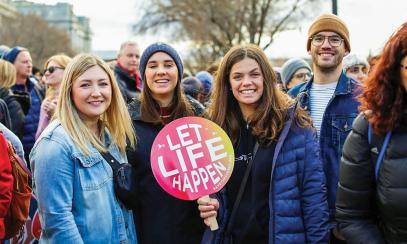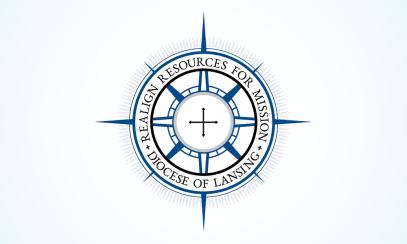U.S. – Cuba Relations
On December 17, 2014, President Obama announced plans to restore diplomatic relations between the United States and Cuba after more than 50 years. Obama indicated the shift was prompted by the ineffectiveness of a “rigid” policy of isolation of Cuba. Going forward, Obama stated that the United States would move toward normalizing ties and would open an embassy in Cuba.
According to a Reuters report by Daniel Trotta and Matt Spetalnick, the change in policy was made possible by the release of American Alan Gross, 65, who had been imprisoned in Cuba since 2009 on spy charges. In addition, Cuba agreed to release an intelligence agent who spied for the U.S. after almost 20 years in prison, while the U.S. released three Cuban intelligence agents in return.
The new direction does not mean an end to the more-than-50-year U.S. trade embargo of Cuba, as such a move would require congressional approval. However, President Obama has expressed his intention to ask Congress to lift the embargo. He might face tough opposition though. For example, Florida Republican Senator Marco Rubio, who is a Cuban-American, has said he would use his role as chairman of the Senate Foreign Relations Committee’s Western Hemisphere subcommittee to try to block the plan.
So what does it all mean?
A fact sheet released by the Office of the Press Secretary in the White House on December 17, 2014, listed the key components of this “new course on Cuba.” Here are just a few:
- Establishing diplomatic relations with Cuba
- Facilitating remittances to Cuba by U.S. persons
- Authorizing expanded commercial sales/exports from the U.S. of certain goods and services
- Authorizing U.S. citizens to import additional goods from Cuba
- Facilitating authorized transactions between the U.S. and Cuba
- Initiating new efforts to increase Cubans’ access to communications and their ability to communicate freely
- Initiating a review of Cuba’s designation as a State Sponsor of Terrorism
- Unwavering commitment to democracy, human rights, and civil society
Pope Francis
Both President Obama and Cuban President Raul Castro both publicly recognized the role Pope Francis played in the historic decision to re-establish diplomatic relations. In a December 17, 2014, communiqué from the Vatican’s Secretariat of State congratulating both governments, the pope’s role was made even more explicit:
In recent months, Pope Francis wrote letters to the President of the Republic of Cuba, His Excellency Mr. Raul Castro, and the President of the United States, The Honorable Barack H. Obama, and invited them to resolve humanitarian questions of common interest, including the situation of certain prisoners, in order to initiate a new phase in relations between the two Parties. The Holy See received Delegations of the two countries in the Vatican last October and provided its good offices to facilitate a constructive dialogue on delicate matters, resulting in solutions acceptable to both Parties.
U.S. Bishops react
The United States Conference of Catholic Bishops (USCCB) was quick to react to the change in U.S. policy toward Cuba. On the very same day of the announcement by Obama, Bishop Oscar Cantú of Las Cruces, New Mexico, current Chair of the Committee on International Justice and Peace of the USCCB, spoke for the U.S. bishops, “We are…encouraged by today’s announcement by the Administration of important actions that will foster dialogue, reconciliation, trade, cooperation and contact between our respective nations and citizens. Our conference has long held that universal human rights will be strengthened through more engagement between the Cuban and American people.”*
*For more information, see this page on the USCCB website: http://www.usccb.org/issues-and-action/human-life-and-dignity/global-iss...
U.S. EMBARGO OF CUBA: KEY MOMENTS
1959: Castro leads a 9,000-strong guerrilla army into Havana and becomes prime minister.
1960: All U.S. businesses in Cuba are nationalized without compensation; U.S. breaks off diplomatic relations with Havana and imposes a trade embargo in response to Castro's reforms.
1961: U.S. backs an abortive invasion by Cuban exiles at the Bay of Pigs; Castro proclaims Cuba a communist state and begins to ally it with the U.S.S.R.
1962: Cuban missile crisis ignites when, fearing a U.S. invasion, Castro agrees to allow the U.S.S.R to deploy nuclear missiles on the island. The U.S. released photos of Soviet nuclear missile silos in Cuba - triggering a crisis which took the two superpowers to the brink of nuclear war. It was subsequently resolved when the U.S.S.R. agreed to remove the missiles in return for the withdrawal of U.S. nuclear missiles from Turkey.
1996: U.S. trade embargo made permanent in response to Cuba's shooting down of two U.S. aircraft operated by Miami-based Cuban exiles.
1998: The U.S. eases restrictions on the sending of money to relatives by Cuban Americans.
2001: U.S. exports food to Cuba for the first time in more than 40 years after a request from the Cuban government to help it cope with the aftermath of Hurricane Michelle.
2002: U.S. Under-Secretary of State John Bolton accuses Cuba of trying to develop biological weapons, adding the country to Washington's list of "axis of evil" countries.
2003: U.S. President George Bush announces fresh measures designed to hasten the end of communist rule in Cuba, including tightening a travel embargo to the island, cracking down on illegal cash transfers, and a more robust information campaign aimed at Cuba. A new body, the Commission for Assistance to a Free Cuba, is created.
2009: President Obama lifts restrictions on family travel and remittances to Cuba.
2014: President Obama announces plans to restore diplomatic relations with Cuba and open an embassy in Cuba.
QUOTABLE QUOTES
… the effects of economic embargoes…are always deplorable because they hurt the most needy.
- St. Pope John Paul II, Message to the Young People of Cuba, 1/23/1998
The present hour urgently demands that in personal, national and international co-existence we reject immovable positions and unilateral viewpoints.
- Pope Emeritus Benedict XVI speaking in Havana, Cuba in March 2012
We urge efforts to lift the U.S. embargo against Cuba so that greater support and assistance can flow alleviate human suffering…It is long past due that the United States establishes full diplomatic relations with Cuba, withdraws all restrictions on travel to Cuba, rescinds terrorist designations aimed at Cuba, encourages trade that will benefit both nations, and facilitates cooperation in the areas of environmental protection, drug interdiction and scientific exchanges.to ordinary Cubans…Engagement will do more than isolation to advance human rights and
- Most Reverend Richard E. Pates, Bishop of Des Moines and then Chair of the Committee on International Justice and Peace of the United States Conference of Catholic Bishops, in a letter to National Security Advisor, Dr. Susan E. Rice, on September 25, 2013
In the most significant change in our policy in more than 50 years, we will end an outdated approach that, for decades, has failed to advance our interests, and instead we will begin to normalize relations between our two countries. Through these changes, we intend to create more opportunities for the American and Cuban people, and begin a new chapter among the nations of the Americas.
- President Barack Obama announcing a change of direction concerning U.S.-Cuba Relations, 12/17/2014
DID YOU KNOW?
The Compendium of the Social Doctrine of the Church directly addresses the issue of economic sanctions and economic embargos:
507. ...The purpose of these sanctions must be clearly defined and the measures adopted must…be objectively evaluated by the competent bodies of the international community as to their effectiveness and their real impact on the civilian population. The true objective of such measures is open to the way to negotiation and dialogue. Sanctions must never be used as a means for the direct punishment of an entire population: it is not licit that entire populations, and above all their most vulnerable members, be made to suffer because of such sanctions. Economic sanctions in particular are an instrument to be used with great discernment and must be subjected to strict legal and ethical criteria. An economic embargo must be of limited duration and cannot be justified when the resulting effects are indiscriminate.
BY THE NUMBERS: THE CATHOLIC CHURCH IN CUBA
11,309,000 Approximate population of Cuba
85 Percent of Cuban population that was Roman Catholic prior to Castro assuming power
56 Percent of Cuban population that is currently Roman Catholic
1992 Cuban regime amends the Constitution, outlawing religious discrimination and removing the idea that atheism was the official state ideology
200 Number of seats in the first new Catholic church to be built in Cuba since 1959
Photo information
JOINT BASE ANDREWS, UNITED STATES
Alan Gross embraces Tim Rieser (C, back to camera), a member of U.S. Senator Patrick Leahy's office, on the tarmac as he disembarks from a U.S. government plane with wife Judy (L) at Joint Base Andrews in Maryland outside Washington December 17, 2014 in this photo courtesy of Jill Zuckman.
The United States plans to restore diplomatic relations with Cuba more than 50 years after they were severed, a major policy shift after decades of hostile ties with the communist-ruled island, President Barack Obama said on Wednesday.
Gross, 65, who had been imprisoned in Cuba for five years. REUTERS/Jill Zuckman/Gross Family Spokesperson/Handout via Reuters



